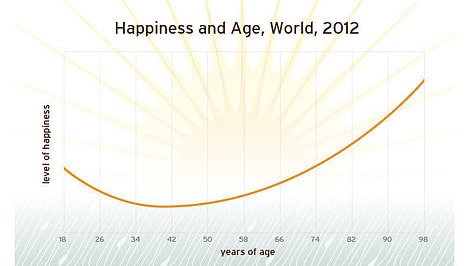What’s The Best Way To Be Happy?-It’s Not What You Think

So, today isn’t my day for “easy” questions, is it? So it appears that many of us are curious about happiness and wonder what it truly takes to be happy in life. That is a loaded question. You see, material things aren’t the point here, nor is ignoring yourself. When seeking happiness as part of your development journey, you should look within rather than without.

The outcomes are remarkable, filled with joy, and transformative for most individuals (though not universally). Yet, if you lack comprehension of happiness or its pursuit, certain actions might misguide you. Only you possess the insight to identify what must be addressed to achieve genuine happiness.
Why Materialistic Approaches May Fail
You’ve probably come across advertisements or videos promoting “genuine happiness” on the internet. These campaigns often start by highlighting the amazing qualities of specific products and how acquiring them can enhance your happiness. These ads usually showcase items that might not be essential, accompanied by reasons why they are indispensable. Yet, even if it appears to be an informative advertisement or something intriguing, there’s no assurance of long-term happiness. In reality, it often works in the opposite way.
Before delving further, here’s a chart (sourced from the Brookings EDU website) illustrating the correlation between age and contentment levels.

The point at which enduring happiness is typically reached tends to extend towards the age of 50 and beyond. As depicted in the graph, happiness declines during the early twenties, only to increase once more around the age of fifty. I’m intrigued by the reasons behind this pattern. Could it be linked to life stages, the allure of material possessions, or is there another underlying factor at play here?
Besides happiness, a common misconception held by many is that happiness is predominantly tied to material possessions and the presence of others. However, this notion is entirely mistaken. While material belongings can provide a temporary sense of happiness, it is short-lived. This is due to the fact that when you have feelings of joy for something that you purchased, that feeling eventually wears off. So, in order to be happy, you must keep buying and buying. In the end, this is just something to fill a void, not happiness.
Genuinely, to attain genuine happiness, it’s crucial to focus on your internal state rather than external circumstances. The root of your unhappiness likely lies deeper within your thoughts and behaviors. Shifting your focus from external factors to personal growth will pave the way for happiness to emerge.
Putting Yourself First is Self-evident.
The manner in which you engage in activities holds significance, not just the activities themselves. Devoting time to actions solely for the sake of others can eventually lead to your own unhappiness. This links with the aspiration to show kindness and affection to others. Witnessing others’ happiness might give us the illusion that it will make us happy too. Yet, it doesn’t work that way; instead, it can intensify our discontent. This stems from prioritizing the contentment of others over our own.
Too many people prioritize helping others over helping themselves. As a result, they believe they are kind, loving, and compassionate beings. They do this to ensure that the happiness of others comes before their own. However, in order to truly help others be happy, you must first take care of yourself.
When one puts oneself first, one demonstrates genuine compassion and love for those around them. Yes, some may believe that putting yourself first is selfish and unconcerned about others. People who believe this about you are toxic because a true happy loving person would want you to take care of yourself.
Prioritizing self-care involves ensuring your own needs are met without inconveniencing those in your vicinity.

Any avenue of happiness will address your needs. By prioritizing your needs over others, you ensure fulfillment of self-love and love for those around you.
Craft your own happiness. Engaging in hobbies or striving for self-improvement enhances self-awareness and boosts confidence. These actions exemplify putting yourself first and acknowledging your significance. Learning to decline is another effective self-prioritization technique. Choosing not to engage in things that don’t serve you displays empowerment and consideration for others. Maintaining healthy boundaries is gratifying and communicates self-care to others.
Keep in mind the fundamental principle: treat yourself with the same care as you treat others. When you practice self-kindness and respect, you become more efficient and organized, ensuring your needs are met. Prioritization, setting boundaries, establishing goals, maintaining persistence, and moderating expectations of others are all steps in the journey of self-love. This approach maintains your mental well-being, reducing the likelihood of depression, anxiety, and other mental health issues. Ultimately, by placing yourself first, your life gains a sense of fulfillment and vitality, like a gift that radiates to those around you.
And, For the Sake of Happiness, Don’t Keep Anything Hidden.
By suppressing emotions or dwelling on the past, you forfeit the chance for genuine happiness. What remains? A concoction of negativity, animosity, and misery. Have you ever wondered how your sentiments evolve when reminiscing or harboring concealed emotions? For one, it demands considerable effort to stow away feelings and persist in living in past moments.

Moreover, fixating on the past might create an illusion that staying there could bring about changes. However, residing in nostalgia and yearning for alternate scenarios or a seemingly superior past won’t yield benefits. Rather than dwelling in the past, channel your energy into making your present meaningful.
However, what about concealing matters or taking actions to shield others? You might be contemplating whether unveiling your emotions could potentially harm others, even if you’re experiencing happiness. Indeed, disclosing your emotions can occasionally cause discomfort, yet there are instances where you can benefit from the truth. It’s advisable to maintain confidentiality unless sharing would ultimately aid and support them. If your intention is to assist both them and yourself, refraining from bottling up emotions is crucial. Suppressing them could ultimately undermine your happiness rather than enhance it.
Just because you are open and honest with others does not mean it will benefit you. In contrast to dwelling in the past, your past experiences remain an integral part of your present. Recognizing that these experiences have contributed to shaping your current self triggers a transformative shift. These past learnings can guide you towards understanding your genuine aspirations and interests in life, especially if they align with aiding both yourself and others.
Feeling a Bit Sad? Maintain Positive Relationships
Hold on! Let’s clarify the situation at hand. Is it happiness, a cheerful demeanor, consistent learning, or acts of kindness? Not exactly, but the presence of positive individuals in your life can play a role. It’s common to strive to satisfy those in our surroundings—prioritizing others, striving to bring them happiness, and the like. However, in times of personal need, we often overlook the support available around us, leading to certain consequences.
Sadness. Encountering unanticipated sorrow is arguably the most challenging. Unplanned sadness tends to provoke frustration toward loved ones, elicit unintended remarks, and might even lead to indulging in unhealthy eating habits. Is this accurate? Undoubtedly, this is deeply regrettable.
No one to hurt or complain around? (Haha Just Kidding)
Alright, then. We often turn to our phones or any available electronics, maybe even that stash of junk food. Does this sound like a pessimistic perspective? Consider me on board.
I’ll just “put this aside” for another occasion (coupled with a forced smile). Before you embark on sharing your caring and affectionate demeanor with others, it’s essential to have a strategy in place. Given that interactions with others are inevitable when you’re out and about, you can either engage with everyone, even those who bring negativity, or you can actively seek out individuals who exude genuine happiness. This is where the significance of having positive influences in your life becomes apparent; they step in to contribute to your overall happiness. The presence of supportive and optimistic relationships cultivates a brighter outlook on life. You essentially have the choice between cultivating positivity or allowing negativity to dominate. Yet, whichever path you select will substantially impact your daily experiences. The presence of constructive relationships holds substantial importance in one’s life.
Indeed, we’re circling back to the concepts of “suppressing emotions” and “lingering in the past.” If you find yourself in the company of negative individuals more often than positive ones, their influence is likely to affect your outlook. Moreover, revisiting moments when others have caused you harm will inevitably evoke emotions and possibly lead to a recurrence of depression. Thus, it’s essential to exercise caution around such individuals.
For a swift return to a more enjoyable lifestyle, immersing yourself in the company of positive individuals is crucial. Influences take time to exert their impact and transform your level of happiness. Consequently, you need to focus on personal growth and live life on your own terms. A piece of concise guidance is to steer clear of negativity, as it won’t contribute to your journey towards happiness.
Closing Argument
Indeed, we can pursue happiness externally, yet it remains transient. This type of happiness hinges on what others and external factors can provide, without addressing the fundamental issues. Genuine, lasting happiness necessitates self-improvement and nurturing relationships. The power to shift your life perspective lies within you. Keep in mind that achieving this entails the backing and affection of positive and inspiring individuals.
To be happy you must learn to love yourself: Check out my Learning How to Love Yourself article
Feel free to ask if you have any inquiries about achieving genuine happiness. I possess substantial expertise in this area and would be delighted to provide guidance.
Related: How to Take Control of Your Thoughts- It’s Really Possible
Why the Truth Will Set You Free- It’s Emotional
Negativity is Very Toxic and will Destroy You
Kiersti writes on self-love and personal development professionally. Over the past ten or so years, she has studied self-love and personal growth. Visit https://womansdailyneeds.com/ to learn more about what she does, and like her on Facebook at https://facebook.com/womansdailyneeds to keep up with her.


14 Responses
I really really enjoyed reading this article, it’s eye opening to see other peoples point of view. Happiness is never something I’ve strived for.. I’ve always thought that looking to be happy all the time is a big ask! Rather than striving to be happy, I’ve aimed to find gratitude in every day.. even the bad days!
Happiness and gratitude go hand in hand very well. Being a grateful person makes one happier and loving towards others. I am glad that you find gratitude in everything you do. Thanks for taking the time to read my article.
That graphics chart on happiness in relation to age is totally fascinating. I wonder how that relates to realizing the stresses of life and responsibilities. It is absolutely true though about surrounding yourself with people who are positive. Being around negative people all the time just makes it a constant cycle. Being surrounded by positive people who are actively working on bettering their lives, or working towards their goals, is really uplifting and motivating.
I found it very interesting as well. With that said, I will look into writing an article based on stress and happiness. So thank you for that. It’s very toxic to be around negative people and can change one’s energy in the long run. That’s why it’s important to just live your life, not matter what.
Hello Kiersti,
This article came to me at the right time. I started this year depressed and not very happy and I decided to change my life, to change myself. In one of your points, it is totally me. Living in the past and thinking about how great a life I had before. But I have to think now, not in the past. However, it is hard to work on yourself if people around you make you sad. Would you have any advice on how to ignore or eliminate the feelings caused by other people?
Thank you
Nat
Happiness is something that is all about one person, and no one else can make that decision for you. However, one of the hardest things when it comes to happiness is not having support. When one has a lack of support, then happiness is something one will have to do on their own. For me, dealing with lack of support and negative people makes me want to achieve it more. To ignore those negative feelings takes rewiring the brain and learning to not care what people think. Good luck on your happiness journey. I am sure you will succeed.
Good article. I think a lot of people forget to take care of their own needs. You get caught up in taking care of the kids, cooking, cleaning etc, the list goes on and on. It is very important to take time for yourself. I’ve been married a long time, my husband and I make sure we give each other space. Everyone needs time alone to think, feel, write in a journal whatever makes you feel good. It is very easy to get stuck in patterns too, so self care helps break up the monotony.
Thank you!
I believe that when people start to grow, they forget who they are. With that said, when life goes, people get preoccupied in doing things and their self just becomes a last priority. However, this can cause unwanted emotions. So it’s important to spend just a few minutes every day doing something for self. No matter what it is it’s significant even if it’s just taking 5 minutes and going to get a drink or something. If one can’t take care of themselves, then others can feel their tension coming from them. So I am glad you said that your husband, and you, take a little space. Because if one doesn’t have space, it makes one frustrated. There are so many things one can do to help their emotions. For example, journals or meditation.
I usually don’t read articles like this, but I was browsing and it caught my attention. It really brought home to me the truth of just how shallow materialistic things are. Our relationship with ourselves and other people are really what makes us tick. And our spiritual being is absolutely number one. That is where we get a sense of who we really are and our sense of purpose. Once you get that in proper perspective, it’s the finer things in life that really should matter. Just wanted to share my thoughts. Thank you! Keep up the great work!
Robin
I couldn’t agree more. Materialistic things do nothing for one’s happiness in the long run, and they’re more toxic than good. Thanks for reading and talking about spirituality, it’s very true.
This is more than inspirational. I have found myself in less happy times at 38. Apparently, I meet the statistical average. I have noticed that I get annoyed after a while when people ask me to do things for them. I guess its because I do so much for other people I do not make time to learn what satisfies me. I learned that talking about what’s wrong helps ease the stress and tension behind what bothers me. It also builds trust and loyalty with the people you talk to because they feel a sense of value when you are able to be vulnerable.
I think a lot of people get annoyed when doing things for people. I think this has to do with it can make us feel that the only reason they care is to get something from someone. However, it’s important not to listen to that mentality. If one like you said can talk about it with others, it can help one get something off their chest and feel less stressed about the situation. However, there are time people don’t have someone they can go to, so it makes it harder. Which makes some people not want to be vulnerable. Thanks for reading.
I love your perspective!!! Healthiness expresses our wealth, and money is a reflection of happiness. Also, thanks for inquiring why people become less happy in their early twenties, only to rise above the age of 50 — that’s fascinating! Our society brainwashes us to think we are incomplete and need to keep displacing ourselves to obtain happiness — this is a false sense of hope and redemption.
However, our source of happiness is an intrinsic property and, like money or honey, can’t be bought from the store.
In the end, selfishness is necessary to love ourselves, others and emanate a frequency of selflessness into the world. If we don’t put ourselves first and prioritize our health, we are all but happy.
Thank you. I couldn’t agree more.